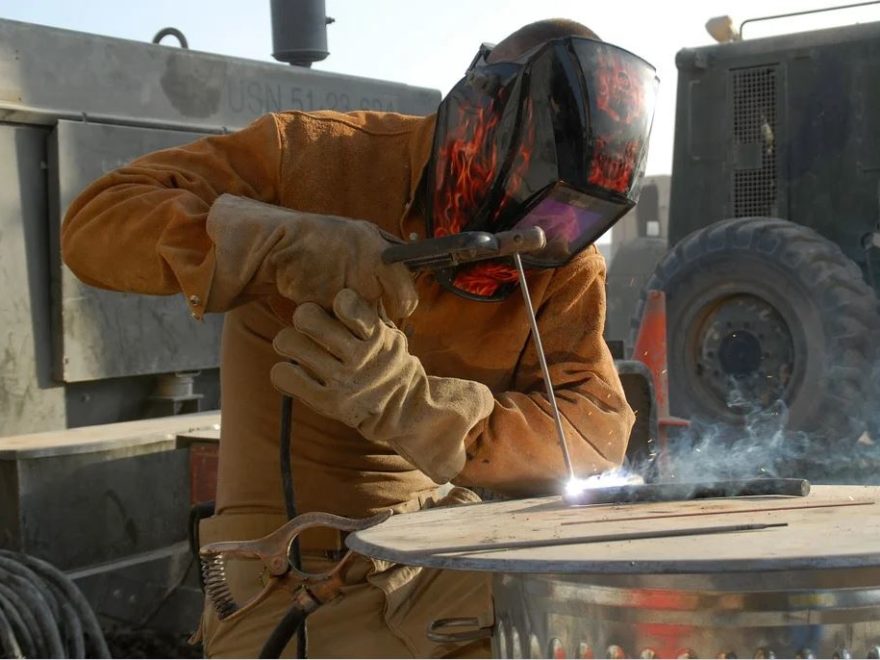The reality for those of us who have been in the industry for a few years is that we have seen a progressive deterioration of what old people of the place call as “profession”, understood as the taste for the taste brought to the profession. Today nobody hardly repairs a television. With the price of the new ones, the technician who comes home directly tells you: “Sir, it costs more to buy a new one than to repair this one.” The same applies to the rest of household appliances and many of the elements of the house (not to mention computers, where the runaway career between hardware and software manufacturers leads to a two-three-year-old equipment to be obsolete).
But this, which is relatively simple in the electrical part and especially in the electronics, is not, far from it, in the mechanical part. The mechanical elements are capital intensive, and are prepared to last for many years, since their replacement cost is very high. In short, they must be maintained. They are subjected to very complicated conditions in sectors such as iron and steel industry, and although modern preventive-predictive maintenance (PPM) techniques extend the life of the equipment and make it more “comfortable”, the reality is that they do not get rid of an intrusive maintenance from time to time. And to carry it out, there have to be professionals who know how to do it. And above all, that they do it well.
I have been in the industry for more than ten years hearing that “it is the case that there are no more adjusters as there were before”, or “there is no way to find a tracer boiler-forger, or a suitable pipe worker”. Finding a welder who does more than weld with a semi-automatic weld has become an object of desire that, in addition to being rare, it is very expensive. In fact, they are so rare in companies that they are known by their first and last names.
Companies that work for the mechanical subcontracting sector cross their arms when you tell them that the level of personnel, they bring to maintenance shutdowns, investments in new equipment or general entertainment, does not measure up. required. They are full of people with good will, in many cases immigrants, some of whom do not even understand the language, who do not have the necessary qualifications. Of course, nothing to object to there being emigrants working on this. The other way around. It is not their fault or their responsibility the lack of professionals with office in the union. But it does not seem that they are the ones who should lead the way out of this problem.
The landing of multi-service companies / facilities in the industrial sector, due to the brick crisis, has been carried out without having experience or a squad, seeking to sell people with low qualifications by people with a profession, based on lowering costs. The recently signed metal agreement for Biscay includes a subrogation chapter that is detrimental to the qualification of the staff, not to the quantification of the same. We will talk about this in Chapter 3, when we talk about the different types of contracts.
The current situation in VT does not augur a good future in this field. Learning adjustment, boiler-forgers, welding, etc., in short, staining your hands, does not sell. It is much more “fashion” to study electronics, robotics, microprocessors, automatic or the new Artificial Intelligence modules. Not even VET schools are promoted as places where professionals are sold, but rather those with the most modern modules.
What I mentioned in the previous paragraph is a reality, just look at the newspapers or worry about seeing options for your children to realize it. Furthermore, the Vocational Training Centres for the unemployed are directing their business towards other sectors of greater demand in the future, such as social health (nursing, care for the elderly, etc.). In other words, in this type of companies the industrial sector is being abandoned. They say it without any ambiguity. It is not profitable to keep teachers in the centres because there are no students who come.
If you want to find a numerically controlled turner you may even be lucky. But as you want the turner to be a conventional lathe one, because the variety of pieces you want to turn is high, you enter the world of dreams. It is a chimera. If you want a welder that instead of “sticks” does “welds”, as in the days when the shape of the welds was synonymous with the category of the same, forget about it. Semiautomatic welder, and little else. The good guys charge like football stars.
When I was a boy, the training school in my town was called “School of Arts and Crafts.” You were studying “Master”. I think the name says it all. While other countries have developed plans to give VT the prestige and rank it deserves, in Spain we continue to question whether Dual FP is OK or not. Shouldn’t it be compulsory for kids to be practicing in companies for a couple of years before obtaining their degree, which would also force companies to have learning paths for them?
To end this part of the tetralogy, I am going to give two examples from my professional life. Only two, but there are many more:
-
When I was Head of Maintenance at Derivados del Fluor-Bayer Hispania, I saw my pump adjusters “listen” to the pump when it was being repaired. They turned the shaft by hand to see if the bearings made noise, as if they were listening to the combination of a safe box until it made the “click” that allowed it to open. Almost eternal repairs, made with a taste and dedication worthy of craftsmen-goldsmiths.
-
In my time as Director of the Danish multinational RMIG, I was one day at the plant we had in East Germany, near Leipzig, and during a walk through the factory with the Director of the plant, I was struck by the number of kids that we had in the tool shop. He told me that part of his teaching qualification was influenced by the grade the company gave them for their performance at the plant. Similarly, companies received more or less government subsidies based on their predisposition to having this type of kid, measured as a percentage of total employees. And I thought, can this not be applied in my country? We are talking about the beginning of the millennium, that is, a certain time has passed.
The generational replacement of companies demanding service is being carried out with signings of companies offering service, eliminating formal training requirements, internal training costs, as a direct way of attracting talent. Richard Branson’s famous phrase “Train people well enough that they can leave, treat them well enough that they want to stay” is impossible to fulfil, generating misgivings and deteriorating relations between companies and workers. And it is something that, when fed back, generates an increasing ball.
It is not my intention to enter into a deceptively sentimental campaign that “any past time was better” (first example) or that “things get better outside” (second example). The aim is simply to show that we are not talking about anything that has not been done here before or that is not being done elsewhere. So, it is not “rocket science” what we are talking about. It is perfectly possible.
Next chapter: Part Three – Contracts in subcontracting.

